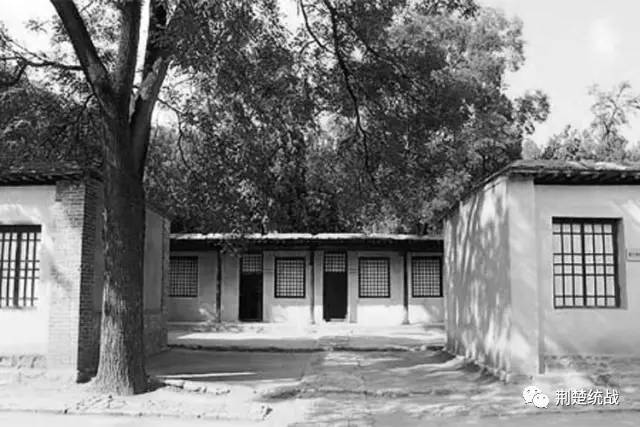What is a ‘new type of party system’?
On March 4, Xi Jinping, general secretary of the Central Committee of the Communist Party of China (CPC), joined a panel discussion with political advisors from the China Democratic League and the China Zhi Gong Dang, representatives without party affiliations, and representatives of returned overseas Chinese, at the first session of the 13th National Committee of the Chinese People's Political Consultative Conference (CPPCC). While giving a keynote speech, Xi put forward the concept of the “new type of party system.”
On March 6, leaders from non-Communist parties and the All-China Federation of Industry and Commerce jointly met the press, where the “new type of party system” again became a topic of discussion.
So, what is this new type of party system? Here we have summarized some of its key characteristics.
I. Grown from China’s soil
Let us look back to 70 years ago when the “May Day Slogans” were issued by the Central Committee of the CPC on April 30, 1948.
China was still at war. To commemorate the International Labor Day on May 1, the CPC Central Committee based in Fuping, Hebei province, issued “May Day Slogans”, one of which called for the convening of a political consultative conference to prepare for the formation of a democratic coalition government. This call created a new chapter in the CPC’s collaboration with China’s non-Communist parties and people without party affiliations.

The CPC Central Committee adopted the “May Day Slogans” at a meeting in Chengnan village, Fuping county, Baoding city in Hebei province on April 30, 1948.
Answering to the “May Day Slogans” and openly accepting the leadership of the CPC was a crucial turning point in the history of China’s non-Communist parties.
Thenceforth, the CPC-led system of multiparty cooperation and political consultation emerged on the political stage of a new China.
II. Development through history
“The multiparty cooperation and political consultation under the leadership of the Communist Party of China is a basic political system in China, and is a party system with Chinese characteristics. Cooperative relations between the CPC and other political parties are based on the principle of long-term coexistence, mutual supervision, treating each other with full sincerity, and sharing weal and woe.”
III: CPC and its eight brothers
Communist Party of China (CPC)
Founding time: July 1921
Founding place: Shanghai
The Communist Party of China is the vanguard of the Chinese working class, as well as the vanguard of the Chinese people and the Chinese nation. As the core of the leadership to build socialism with Chinese characteristics, the CPC represents the development trend of China’s advanced productive forces, the orientation of China's culture, and the fundamental interests of the overwhelming majority of the Chinese people. Its highest ideal and ultimate goal is to realize communism.
Membership: Over 89 million
General Secretary of the CPC Central Committee: Xi Jinping
Revolutionary Committee of the Chinese Kuomintang (RCCK)
Founding time: January 1948
Founding place: Hong Kong
Composition: Mainly senior intellectuals and upper-middle class members who have relations with the Kuomintang, or have historical relations with the RCCK, or have relations with people residing in Taiwan, and members specialized in social and legal affairs.
Membership: Over 131,000 as of the end of 2017
Chair: Wan Exiang
China Democratic League (CDL)
Founding time: March 1941
Founding place: Chongqing
Composition: Mainly senior intellectuals specialized in cultural, educational, scientific and technological work.
Membership: Over 295,000
Chair: Ding Zhongli
China Democratic National Construction Association (CDNCA)
Founding time: December 1945
Founding place: Chongqing
Composition: Mainly members from the business circle.
Membership: Around 184,000 members
Chair: Hao Mingjin
China Association for Promoting Democracy (CAPD)
Founding time: December 1945
Founding place: Shanghai
Composition: Mainly senior intellectuals specialized in the educational, cultural and publishing industries.
Membership: Over 156,000 as of the end of 2016
Chair: Cai Dafeng
Chinese Peasants and Workers Democratic Party (CPWDP)
Founding time: August 1930
Founding place: Shanghai
Composition: Mainly senior intellectuals from the medical and healthcare industry, as well as from the fields of human resources and ecological and the environmental protection.
Membership: Around 162,000
Chair: Chen Zhu
China Zhi Gong Dang
Founding time: October 1925
Founding place: San Francisco, USA
Composition: Upper-middle class returned overseas Chinese and their relatives, and representative influential people with overseas relations.
Membership: Nearly 54,000
Chair: Wan Gang
Jiu San Society
Founding time: September 1945
Founding place: Chongqing
Composition: Middle and high level intellectuals from fields of scientific studies.
Membership: Over 167,000 as of June 30, 2017
Chair: Wu Weihua
Taiwan Democratic Self-Government League (TDSGL)
Founding time: November 1947
Founding place: Hong Kong
Composition: Mainly public figures from Taiwan as a political alliance of socialist workers and patriots supporting socialism.
Membership: Over 3,000
Chair: Su Hui
IV: Three new features drawing a clear distinction from the old
General Secretary Xi Jinping has made three-point explanations of the “new type of party system.”
First, it is new because it combines Marxist political party theories with China’s reality, and truly, extensively and in the long term represents the fundamental interests of all people and all ethnic groups and fulfills their aspiration, avoiding the defects of the old-fashioned party system that represented only a selective few or the special interest groups.
Secondly, it is new because it unites all political parties and people with no party affiliation towards a common goal, effectively preventing the flaws of the absence of oversight in a one-party rule, or the struggles for power and the unhealthy competition among multiple political parties.
Thirdly, it is new because it pools ideas and suggestions through institutional, procedural, and standardized arrangements, and develops a scientific and democratic decision making mechanism, which steers away from another weakness of the old-fashioned party system where decision making and governance were confined by interests of different political parties, classes, regions and groups that could tear the society apart.
V: New hopes for “three good” instead of a grandstand play
Xi said that the non-Communist parties and people without party affiliation should act as good consultants, good aides, and good co-workers of the CPC while improving their responsibilities and capabilities in order to accomplish China’s affairs together.
The new era brings a broader platform for multiparty cooperation, and we should make full use of the political consultation system among political parties, which is both a democratic form and an institutional channel through which many things could be discussed and negotiated in a proper way, Xi said.
Consultation generates consensus and unites wisdom and strength. Improving the political party consultation system is no grandstand play, but rather aims at down-to-earth and feasible consultation where deliberation of state affairs should be reasonable and appropriate with evidence-based and substantial content, and political participation and consultation should be to the crucial point with facts and practical meaning. Political advisors should work hard in improving their consultation ability and capability.
(translator: Lethe Guo)
相關閱讀:




